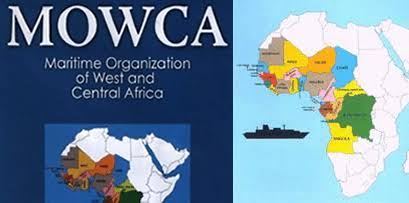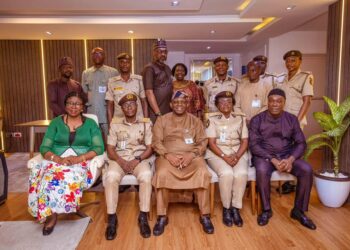
Findings by Shipping Position Daily have revealed how the protracted crisis in the Maritime Organisation of West and Central Africa (MOWCA) has stalled the commencement of the much-awaited Regional Maritime Bank, despite assurances and pledges from government officials.
Apart from the crisis, the change of Ministers as well as Permanent Secretaries have impacted negatively on the bank, which has remained on paper, about two years after an office space was secured and executive positions ceded to some member-nations.
Recall that in 2022, Mu’azu Sambo; the then-Minister of Transportation had vowed to kick start operations for the specialised bank after securing an office space at the Nigerian Maritime Administration and Safety Agency (NIMASA) office in Abuja.
Sambo, had while receiving in audience the Secretary General of MOWCA; Dr. Paul Adalikwu expressed the hope that within 90 days the Ministry will be able to secure accommodation and that the bank could take-off.
It was under the then-Minister of Transportation; Mr Rotimi Amaechi that Nigeria secured the Secretary General position of MOWCA. The have been two Ministers after him, while the Permanent Secretary has also been changed.
The idea of a maritime bank for West and Central African countries was conceived about 13 years ago to facilitate single digit interest loans to provide leeway to key players in the sector and enable them compete favourably with their international counterparts
Shipping Position Daily recalls that member-nations of MOWCA had agreed that there is a major deficit in the development of indigenous participation in the regional maritime sector and associated value chain.
The MOWCA is comprised of: Angola, Benin, Cameroon, Cape Verde, the Congo, Cote d’Ivoire, the Democratic Republic of the Congo, Gabon, The Gambia, Ghana, Guinea, Guinea-Bissau, Equatorial Guinea, Liberia, Mauritania, Nigeria, Sao Tome and Principe, Senegal, Sierra Leone and Togo.
As at 2022, a total of 9 countries had signed the bank’s charter with prospects of more signing into the project that will create easy access to funding of maritime related projects
Consequently they agreed to establish a maritime bank focused on the growth and development in West and Central Africa with a view to raising debt and equity capital of $850m and $150m respectively.
Equally, the proposed bank’s headquarters and presidency were ceded to Nigeria by the countries that make up the body.
However, insider sources within the Ministry of Marine and Blue Economy revealed to our correspondent that attempts to kick-start operations of the bank has been frustrated due to internal strife stemming from an earlier attempt to replace Paul Adalikwu, the Secretary General of MOWCA, with Mrs. Nneka Obianyor.
It was further alleged that amidst this turmoil, Dr. Mrs. Magdalene Ajani, the then-Permanent Secretary of the then-Ministry of Transportation, proceeded to appoint the board of directors for the bank. Nevertheless, after May 29, 2023, the political landscape shifted with the backing of President Bola Ahmed Tinubu who supported Adalikwu to retain his position as Secretary General of MOWCA. Additionally, the replacement of Magdalene Ajani as the Permanent Secretary in the ministry has further complicated matters.
Sources within the ministry revealed to our correspondent that the appointed directors of the bank have been left in limbo, as their fate remains uncertain while awaiting directives from both the Secretary General of MOWCA and the new Permanent Secretary of the recently created Marine and Blue Economy department.
One of the sources confirmed that, ‘‘Under the Charter of the Regional Maritime Development Bank, Nigeria has three slots of the top management of the Bank, that include the President of the Bank who is regarded as the Managing Director of the Bank, the Director and the legal Adviser. There are two Vice Presidents, one from Cote D’Voire and the other one from Cameroon”.
Reacting to the delayed commencement of the bank, Otunba Sola Adewunmi, the President of Nigeria Shipowners, expressed his frustration and concerns. Adewunmi emphasized that his association had actively advocated for the establishment of the bank and had proposed using the Cabotage Vessel Financing Fund (CVFF) as startup capital.
“We made our position known to the Office of the Minister of Marine and Blue Economy. We have advocated for it. We have even advised them that they should use the CVFF money to commence this bank. So we are looking forward to them whether they will take the advice or not. It’s left for them,” Adewunmi stated.
He further highlighted the necessity of the maritime bank for the development of shipping in Nigeria, particularly considering prevailing interest rates and the exchange rate between the dollar and the Naira. Adewunmi reiterated that using the CVFF money as startup capital was a viable solution to kick-start the bank’s operations.
When asked about the potential objections from other ship owners regarding the proposal, Adewunmi expressed confidence that the idea would be widely accepted, emphasizing the importance of the initiative for the entire maritime sector.
Reflecting on the complexities of the situation, Dr. Chris Ebare, Chairman of the Institute of Chartered Ship Brokers (ICS), expressed doubt about Nigeria shouldering responsibilities for the bank’s operations.
He told our correspondent: “First and foremost, establishing a maritime bank is not a bad idea, if it is a bank that the federal government will not be in charge, because you know instead of putting bankers to run it, they may look for a surveyor to be in charge. It will be nice to have the bank, if they will not look for those who read English Literature or Political Science to run.”
He further highlighted the importance of regional collaboration, stating, “I would say that the federal government is not one that is trying to run the bank, it should work in conjunction with MOWCA. So it shouldn’t just be for Nigeria”, he insisted.















